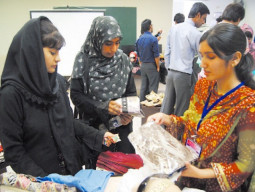
To take the example of Greece, after intense late night meetings and a constant barrage of discussions with stakeholders the financial managers came up with a three-pronged approach to the crisis engulfing the embattled Eurozone.
The news was met with renewed fervour in the markets with the Dow Jones opening 2% higher. But this is just a temporary solution. Greece, alongside Spain and Italy, now has to take more serious measures to reduce the grandiose debt that has accumulated in their books.
The main issue in Greece is tax evasion. Raising revenue through taxation is of course the only viable method that must be implemented vigorously to assist Greece in its austerity programme.
In order to stem this particular tide of tax avoidance, the government has come up with a particular scheme to try and encourage timely payment of tax. It is introducing a new tax card called “forokarta”.
While swiping the card at a store is optional, holding an electronic record will become mandatory in 2012. The aim is that the card will automatically transmit to the finance ministry a record of each and every purchase the user makes. The user will then be able to calculate income tax owed correctly and without having to collect receipts from the place of purchase.
Although the scheme may seem foolproof, it has its flaws. Few, if any, stores actually have a card reader which recognises the card and many people regard the new technology with trepidation. It seems the policy makers need to return to the drawing board and come up with something more permanent and easy to implement. The problem isn’t just financial, it’s about character
Pakistani education system needs to change
What lessons can Pakistan learn from these depressing, dismal, Dickensian influenced dark days? Prior to jobs or investment opportunities, the education system needs to be drastically changed and play “catch up” with the rest of the world. Without trying to simplify the issue, it is clear that a more educated and skilled population or work-force is essential to any economic revival.
If the annual budget increased its stipend towards education and research rather than pumping up the military garrisons to full capacity, then matters might change for the better. Throwing money at the situation won’t always help though. We saw this in the last financial crisis, and we are seeing it again.
There should be a focus on entrepreneurship and inventing new ideas as well as research into improving agriculture and rural policies. This would be a beneficial start to allow the next generations to weather the storm of economic decline.
It is vital for Pakistan to take some precautionary measures to come out a stronger nation, albeit a little worse for wear from the experience. A strong education budget, effective teacher training and investment in technology will aid in the road to economic prosperity.
Of course, it can’t hurt to try out something like the forokarta card either!
The writer is a lawyer based in London and currently studying to be a barrister.
Published in The Express Tribune, November 7th, 2011.
COMMENTS (4)
Comments are moderated and generally will be posted if they are on-topic and not abusive.
For more information, please see our Comments FAQ




1731325890-0/trump-(24)1731325890-0-165x106.webp)












It could be a lesson for Pakistan but not for the Top Pakistani Leadership!!!
@ukmuslim: this article is irrelevant because Pakistan has its own currency, does not have a 120% GDP Debt and is not next door Recession hit Europe
Pakistan is yet to go through industrialisation phase, once we do we will boom
indians trolls on this site dont care u are correct
Once the various donor agencies cancel Pakistans credit cards and Pakistan defaults into bankruptcy, then the readers will wake up just in time to burn some effigies, curse the West and scream Pakistan Zindabad.
there are no takers for this news / advice. if the news is missing with words like army / india / usa, no pakistani read it.